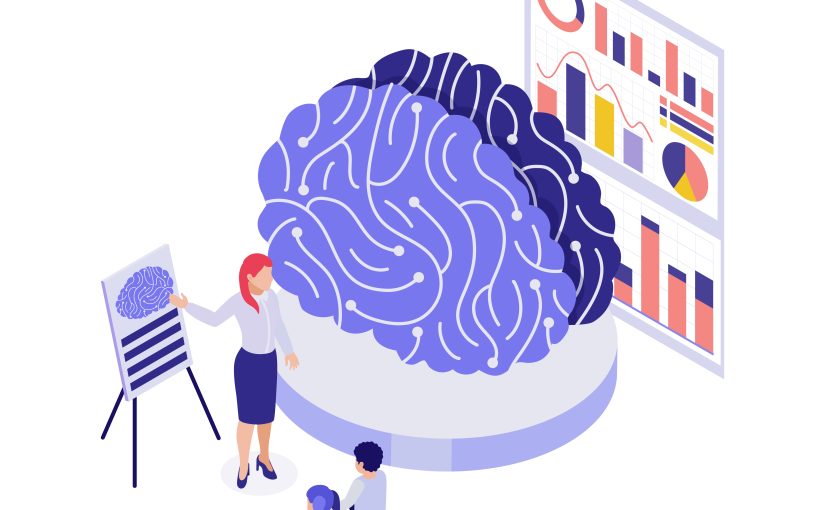 ABA Courses
ABA Courses Behavioral Therapy for Autism
Behavioral Therapy for Autism Developmental Delay
Developmental Delay Neuro developmental Therapy
Neuro developmental Therapy Down Syndrome Therapy
Down Syndrome Therapy Autism Screening
Autism Screening Vocational Training
Vocational TrainingDevelopmental delay refers to the situation where a child takes longer to reach developmental milestones than expected. Developmental milestones are age-specific abilities that a child should develop by a certain age. These milestones include physical, social, emotional, and cognitive abilities. Developmental delays can affect any of these areas and may range from mild to severe.

Causes of Developmental Delay
Developmental delay can be caused by a wide range of factors, including genetic disorders, brain damage, infections, malnutrition, and environmental factors. Sometimes, the cause of developmental delay is unknown. However, early identification of developmental delay is crucial because early intervention can help mitigate the effects of developmental delay and improve outcomes for the child.
Symptoms of Developmental Delay
The symptoms of developmental delay depend on the specific area of development that is affected. Some common symptoms of developmental delay include:
If you notice any of these symptoms in your child, it is important to seek a professional evaluation to determine if your child has a developmental delay.
Early Intervention for Developmental Delay
Early intervention is critical for children with developmental delays. Research shows that children who receive early intervention services have better outcomes than those who do not. Early intervention can help children develop the skills they need to catch up to their peers and be successful in school and life.
At Cogniable, we offer evidence-based early intervention services for children with developmental delays, including those with autism spectrum disorder. Our programs are tailored to meet the unique needs of each child and are delivered by highly trained therapists using evidence-based methods.
Our Approach
Our approach to early intervention for developmental delay is grounded in the latest research and best practices in child development. We use a comprehensive assessment process to identify the specific areas of development that need to be addressed. Then, we develop a customized treatment plan that includes evidence-based interventions designed to improve those areas of development.
Our interventions include applied behavior analysis (ABA), speech and language therapy, occupational therapy, and social skills training. These interventions are delivered in a one-on-one setting with a highly trained therapist who specializes in the specific area of intervention.
In addition to one-on-one therapy, we also offer parent training and support to help parents learn strategies to support their child's development at home. We believe that involving parents in the intervention process is critical for success, as parents are the most important people in a child's life and can provide ongoing support and encouragement.
The Importance of Early Intervention
Early intervention is crucial for children with developmental delay because the brain is most receptive to learning and development during the early years of life. Research shows that the earlier a child receives intervention, the better the outcomes are. Early intervention can improve cognitive, social, emotional, and physical development and prevent secondary issues, such as behavioral problems, academic difficulties, and social isolation.
Moreover, early intervention can reduce the need for more intensive and costly interventions later in life. By addressing developmental delays early on, children may require fewer services and supports as they grow older. This can save families and communities significant time and money while also improving outcomes for the child.
The Role of Parents and Caregivers
Parents and caregivers play a vital role in the success of early intervention for children with developmental delay. They are the child's primary caregivers and can provide ongoing support and reinforcement outside of therapy sessions. Parents can also help therapists identify the child's strengths, needs, and interests and provide valuable information about the child's daily routines and activities.
At Cogniable, we involve parents in the intervention process by providing parent training and support. We teach parents strategies to support their child's development at home and provide ongoing feedback and guidance. By involving parents in the intervention process, we can increase the effectiveness of treatment and improve outcomes for the child.
Developmental delay is a common condition that affects many children. However, with early identification and intervention, children with developmental delays can improve their outcomes and reach their full potential. Early intervention is crucial for success, and parents and caregivers play a vital role in the intervention process. At Cogniable, we offer evidence-based early intervention services for children with developmental delays, including those with autism spectrum disorder. Our highly trained therapists and customized treatment plans help children develop the skills they need to be successful in school and life. Contact us today to learn more about our programs and how we can help your child.
Copyright © 2023 all right reserved.